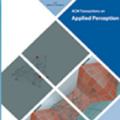Crowdsourced delivery (CSD) is an emerging business model that leverages the underutilized or excess capacity of individual drivers to fulfill delivery tasks. This paper presents a general formulation of a larege-scale two-sided CSD matching problem, considering demand/supply elasticity, heterogeneous preferences of both shippers and drivers, and task-bundling. We propose a set of methodologies to solve this problem. First, we reveal that the fluid-particle decomposition approach of Akamatsu and Oyama (2024) can be extended to our general formulation. This approach decomposes the original large-scale matching problem into a fluidly-approximated task partition problem (master problem) and small-scale particle matching problems (sub-problems). We propose to introduce a truthful auction mechanism to sub-problems, which enables the observation of privately perceived costs for each shipper/driver. Furthermore, by finding a theoretical link between auction problems and parturbed utility theory, we succeed in accurately reflecting the information collected from auctions to the master problem. This reduces the master problem to a smooth convex optimization problem, theoretically guaranteeing the computational efficiency and solution accuracy of the fluid approximation. Second, we transform the master problem into a traffic assignment problem (TAP) based on a task-chain network. This transformation overcomes the difficulty in enumerating task bundles. Finally, we formulate the dual problem of the TAP, whose decision variable is only a price/reward pattern at market equilibrium, and develop an efficient accelerated gradient descent method. The numerical experiments clarify that our approach drastically reduces the computational cost of the matching problem (~700 times faster than a naive method) without sacrificing accuracy of the optimal solution (mostly within 0.5% errors).
翻译:暂无翻译



